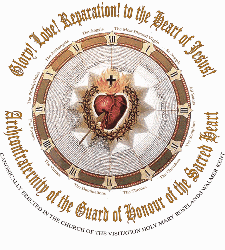Jesus said:
“Come to me, all you who labor and are burdened,
and I will give you rest.
Take my yoke upon you and learn from me,
for I am meek and humble of heart;
and you will find rest for yourselves.
For my yoke is easy, and my burden light.”
Meekness and humility are not valued in the world. Our entertainment and sports-driven world glorify being on top, being #1, not giving way to others. How can the "rest" that Jesus promises to the "meek and humble of heart" be real? How does being meek and humble lead to peace?“Come to me, all you who labor and are burdened,
and I will give you rest.
Take my yoke upon you and learn from me,
for I am meek and humble of heart;
and you will find rest for yourselves.
For my yoke is easy, and my burden light.”
Meekness does not mean being a doormat for everyone in the world to walk upon. Humility does not mean thinking of oneself as the worst or lowest.
One of my favorite meditation books is an updated four-volume series published by Ignatius Press, written by Carmelite Father Gabriel of St. Mary Magdalen, entitled Divine Intimacy. In volume 3, writing about the Sacred Heart of Jesus, Fr. Gabriel explains what it means to be meek and humble and how they lead to peace. Here are some excerpts which I've taken the liberty to paraphrase a bit:
Jesus fulfilled his mission as savior especially through meekness and self-sacrifice. This was the meekness he proposed to his disciples as the condition for interior peace. Too often people lose their peace of heart and consequently disturb the peace of their relationships with others because they let anger agitate them. Jesus proposes gentleness as a condition for doing good and for winning over our brothers and sisters to God. Violence convinces no one, rather it turns away and hardens hearts; while meekness bends and saves.
Christ, "gentle of heart," does not avoid the fight when the glory of the Father and people's salvation are at stake. He welcomes sinners with infinite kindness, but he openly condemns sin, especially pride, hypocrisy, and hardness of heart. He also uses strong language and forceful actions like that against those who were profaning the temple.
Jesus' meekness is the remedy for our wrath and anger, and for our violence and intolerance. Meekness soothes life's sufferings and disposes us to accept the will of God and to abandon ourselves into his hands in times of tribulation.
Jesus was meek because he was humble: he did not seek to assert himself, nor to be applauded, neither did he pursue his own glory, but desired only the honor and glory of the kingdom of the Father; his one aim was to accomplish the mission entrusted to him in total dedication to the salvation of humanity. We are not meek, because we are not humble, and even in performing good works, we do not know how to renounce our affirmation of self to its very core. Jesus was essentially humble because he acknowledged and fully lived his dependence on the Father. We are not humble because we are not fully conscious of our total dependence on God; although we may be convinced of it in theory, we are not so convinced in practice, but are always, to a greater or less extent, escaping from the service of God to serve ourselves, our own pride and self-love.
These thoughts of Fr. Gabriel challenge me to find my identity as Jesus did: to know myself as a beloved son of the Father who loves me with an infinite love. Knowing this in a deeper way one day and a time, I will be secure and at peace and ultimately untroubled by the ups and downs of the events of daily life.
Fr. Gabriel closed his reflection with a prayer from St. Margaret Mary:
O Jesus, permit me to enter your Heart as I would a school. In this school teach me the science of the saints, the science of pure love. O good Master, I shall listen attentively to your words: "Learn of me for I am gentle and humble of heart, and you will find rest for your souls."





